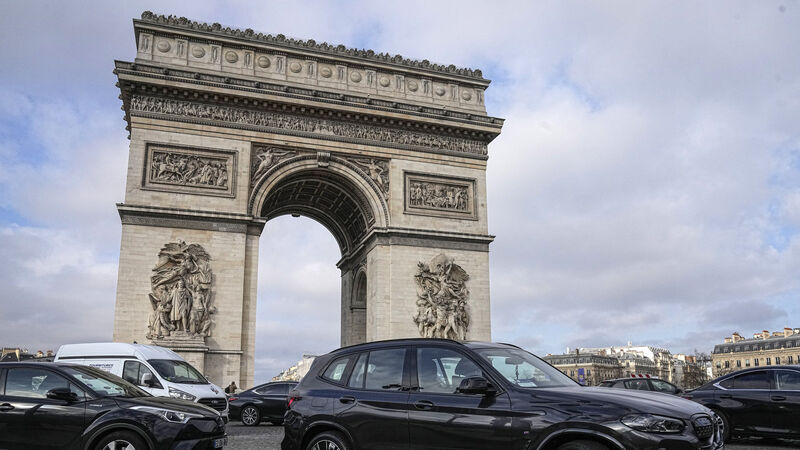Paris residents vote on tripling parking charges for SUVs

An SUV car drives on the Champs Elysees avenue, near to the Arc de Triomphe in Paris. Picture: Michel Euler
A steady trickle of people flowed through the doors of 38 polling stations across Paris today as residents voted on tripling parking charges for Sports Utility Vehicles (SUVs).
The new charges would be hostile to SUVs coming into the city, costing €225 to park for six hours in central Paris and €150 for six hours in some less central areas.
CLIMATE & SUSTAINABILITY HUB
















